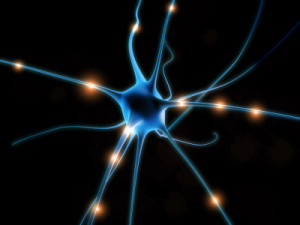









 Here’s part three of the series on philosophy of mind. We’ve moved from dualism in part one through to physicalism in this episode. I look at epiphenomenialism, reductionism, nonreductive physicalism and a constitution view.
Here’s part three of the series on philosophy of mind. We’ve moved from dualism in part one through to physicalism in this episode. I look at epiphenomenialism, reductionism, nonreductive physicalism and a constitution view.
As promised, here’s some suggested reading for those who want to look into the subject futher:
Nancey Murphy, “Nonreductive Physicalism and Free Will” http://www.metanexus.net/magazine/tabid/68/id/10501/Default.aspx
Nancey Murphy, “Is “Nonreductive Physicalism” an Oxymoron?” http://www.metanexus.net/magazine/tabid/68/id/10865/Default.aspx
Nancey Murphy and Warren Brown, Did My Neurons Make Me Do It?: Philosophical and Neurobiological Reflections on Moral Responsibility and Free Will (Oxford University Press, 2009).
Joel B. Green and Stuart L. Palmer (eds), In Search of the Soul: Four Views of the Mind-Body Problem (Downers Grove: InterVarsity, 2005). This volume includes contributions from Stewart Goetz (Substance Dualism), William Hasker (Emergent Dualism), Nancey Murphy (Nonreductive Physicalism) and Kevin Corcoran (Constitution View).
Joel B. Green (ed.), What About the Soul?: Neuroscience and Christian Anthropology (Abingdon Press, 2001). This volume includes contributions from Bill T. Arnold, D. Gareth Jones, Joel B. Green, Patrick D. Miller, Charles E. Gutenson, Stuart L. Palmer, William Hasker, Michael Rynkiewich, Virginia T. Holeman, Lawson G. Stone and Malcolm Jeeves.
Warren S. Brown, Nancey Murphy and H. Newton Maloney (eds), Whatever Happened to the Soul: Scientific and Theological Portraits of Human Nature (Augsburg Fortress, 1998). This volume includes contributions from Nancey Murphy, H. Newton Malony, Ray S. Anderson, V. Elving Anderson, Francisco J. Ayala, Warren S. Brown Jr., Joel B. Green, Malcolm Jeeves, H. Newton Malony and Stephen G. Post.
Kevin Corcoran, Rethinking Human Nature: A Christian Materialist Alternative to the Soul (Baker Academic, 2006).
The website of Timothy O’Connor, featuring a number of articles.
Happy reading, and I hope you find this episode interesting! 🙂
Glenn Peoples
Podcast: Play in new window | Download
UPDATE: Here the whole series, now that it is complete:
Part 1
Part 2
Part 3
Part 4
Part 5
Revisited
 I’m delighted to announce that in December 2014 the Ashgate Research Companion to Theological Anthropology will be published, featuring a chapter from me called “The Mortal God.” The chapter is about how a doctrine of the incarnation might look coupled with a materialist view of human beings. Theological anthropology is about coming up with a view of human persons from a decidedly theological point of view, although there is a natural overlap with philosophy of mind, philosophy of religion, theology and biblical studies. Questions about bodies, minds, souls, spirits, life, death, eternity and more are tackled in this sizeable piece of scholarship.
I’m delighted to announce that in December 2014 the Ashgate Research Companion to Theological Anthropology will be published, featuring a chapter from me called “The Mortal God.” The chapter is about how a doctrine of the incarnation might look coupled with a materialist view of human beings. Theological anthropology is about coming up with a view of human persons from a decidedly theological point of view, although there is a natural overlap with philosophy of mind, philosophy of religion, theology and biblical studies. Questions about bodies, minds, souls, spirits, life, death, eternity and more are tackled in this sizeable piece of scholarship.

 At last, the series ends. Here is part five of the series on the mind/body problem. This episode steps completely away from analytical philosophy and is an overview of some of the biblical material that bears on the subject. Although it’s a comparatively long episode (just under fifty minutes), it’s still a very sketchy overview. The subject is a large one, and at best I can get the ball rolling and encourage you to look further. Enjoy. 🙂
At last, the series ends. Here is part five of the series on the mind/body problem. This episode steps completely away from analytical philosophy and is an overview of some of the biblical material that bears on the subject. Although it’s a comparatively long episode (just under fifty minutes), it’s still a very sketchy overview. The subject is a large one, and at best I can get the ball rolling and encourage you to look further. Enjoy. 🙂 Here’s the fourth installment on my series on the mind-body problem.
Here’s the fourth installment on my series on the mind-body problem. Here’s part three of the series on philosophy of mind. We’ve moved from dualism in part one through to physicalism in this episode. I look at epiphenomenialism, reductionism, nonreductive physicalism and a constitution view.
Here’s part three of the series on philosophy of mind. We’ve moved from dualism in part one through to physicalism in this episode. I look at epiphenomenialism, reductionism, nonreductive physicalism and a constitution view. Here it is, part two of the series on philosophy of mind, In Search of the Soul. In this episode I introduce the viewpoint called emergentism, and I explore the argument for dualism from free will.
Here it is, part two of the series on philosophy of mind, In Search of the Soul. In this episode I introduce the viewpoint called emergentism, and I explore the argument for dualism from free will. In this episode of the Say Hello to my Little Friend podcast I start a four part series on philosophy of mind. I know I recently said that it would be a three part series, but hey, even four parts isn’t really enough to give the subject the full treatment it deserves. In part one I start with the dualist end of the spectrum. Today it’s Cartesian/Platonic dualism, which I take to be the most popular variety.
In this episode of the Say Hello to my Little Friend podcast I start a four part series on philosophy of mind. I know I recently said that it would be a three part series, but hey, even four parts isn’t really enough to give the subject the full treatment it deserves. In part one I start with the dualist end of the spectrum. Today it’s Cartesian/Platonic dualism, which I take to be the most popular variety.